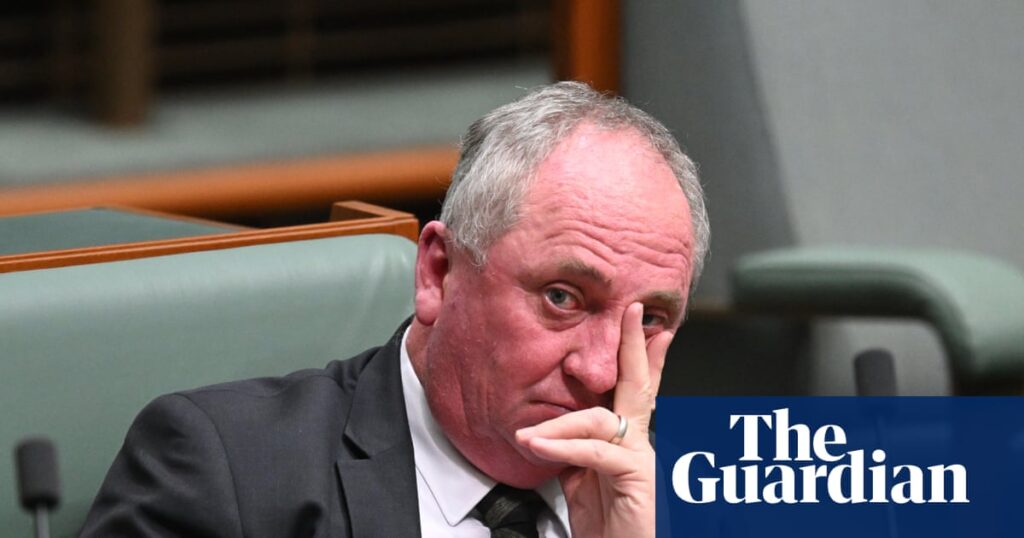
The Nationals are, once again, embroiled in internal strife over climate policy, as former leader Barnaby Joyce makes headlines by walking out of the party room. This latest episode unfolds amidst ongoing debates within the Coalition about revisiting the net zero emissions target set during Scott Morrison’s tenure, a decision that some members now wish to overturn.
On Monday, Joyce’s actions underscored the divisions within the party as he roamed the press gallery, openly criticizing the current stance on net zero. His departure from the party room meeting is seen as a symbolic gesture of dissent, reflecting the broader reluctance among some Coalition members to align with global climate efforts.
Background of the Net Zero Debate
The Coalition’s commitment to net zero by 2050 was announced in 2021 under then-Prime Minister Scott Morrison, with Barnaby Joyce serving as his deputy. Despite this, Joyce has consistently voiced opposition to the target, advocating for a reevaluation of the policy. His stance is emblematic of a faction within the Nationals that remains skeptical of climate science and wary of the economic impacts of transitioning away from fossil fuels.
David Littleproud, the current leader of the Nationals, has attempted to steer the party towards a more pragmatic approach. He emphasized the need for a “credible alternative” to net zero, suggesting that the party cannot simply reject the target without proposing a viable solution. Littleproud’s comments highlight the internal struggle to balance environmental responsibilities with economic concerns, particularly in rural areas reliant on industries like agriculture and mining.
Business and Political Reactions
Business leaders have expressed frustration with the Coalition’s internal discord, urging for policy certainty to facilitate investment and growth. Bran Black, CEO of the Business Council of Australia, reiterated the business community’s commitment to net zero, emphasizing the need for stable policies to support corporate planning and development.
Meanwhile, Nationals senator Matt Canavan presented findings from his report on net zero to the party room, receiving mixed reactions. Former leader Michael McCormack, who has previously aligned with Joyce against net zero, described Canavan’s findings as “credible” and anticipates further discussions.
Political Implications and Future Outlook
Joyce’s actions have prompted speculation about his political future, with rumors circulating about a potential shift to One Nation. His departure from the Nationals party room meeting, coupled with his ambiguous statements about future plans, suggests a possible realignment within Australia’s political landscape.
In contrast, some Coalition members, like Tim Wilson, are focusing on other issues. Wilson, known for his critical stance on government accountability, deflected questions about net zero by emphasizing his commitment to addressing corruption in the construction industry.
“My focus is on having net zero tolerance for corruption on Australian construction sites,” Wilson stated during a press conference.
Conclusion: A Party at a Crossroads
The Nationals’ internal conflict over net zero reflects broader tensions within the Coalition as it grapples with evolving public expectations and international climate commitments. The outcome of these debates will likely shape the party’s policy direction and electoral prospects in the coming years.
As the Coalition seeks to resolve its differences, the pressure mounts to present a unified front and develop a coherent climate strategy. With business leaders and the public watching closely, the party’s ability to navigate these challenges will be crucial to its future success.
For now, the Nationals remain divided, with Joyce’s walkout serving as a stark reminder of the ideological rifts that continue to challenge Australia’s conservative political landscape.






